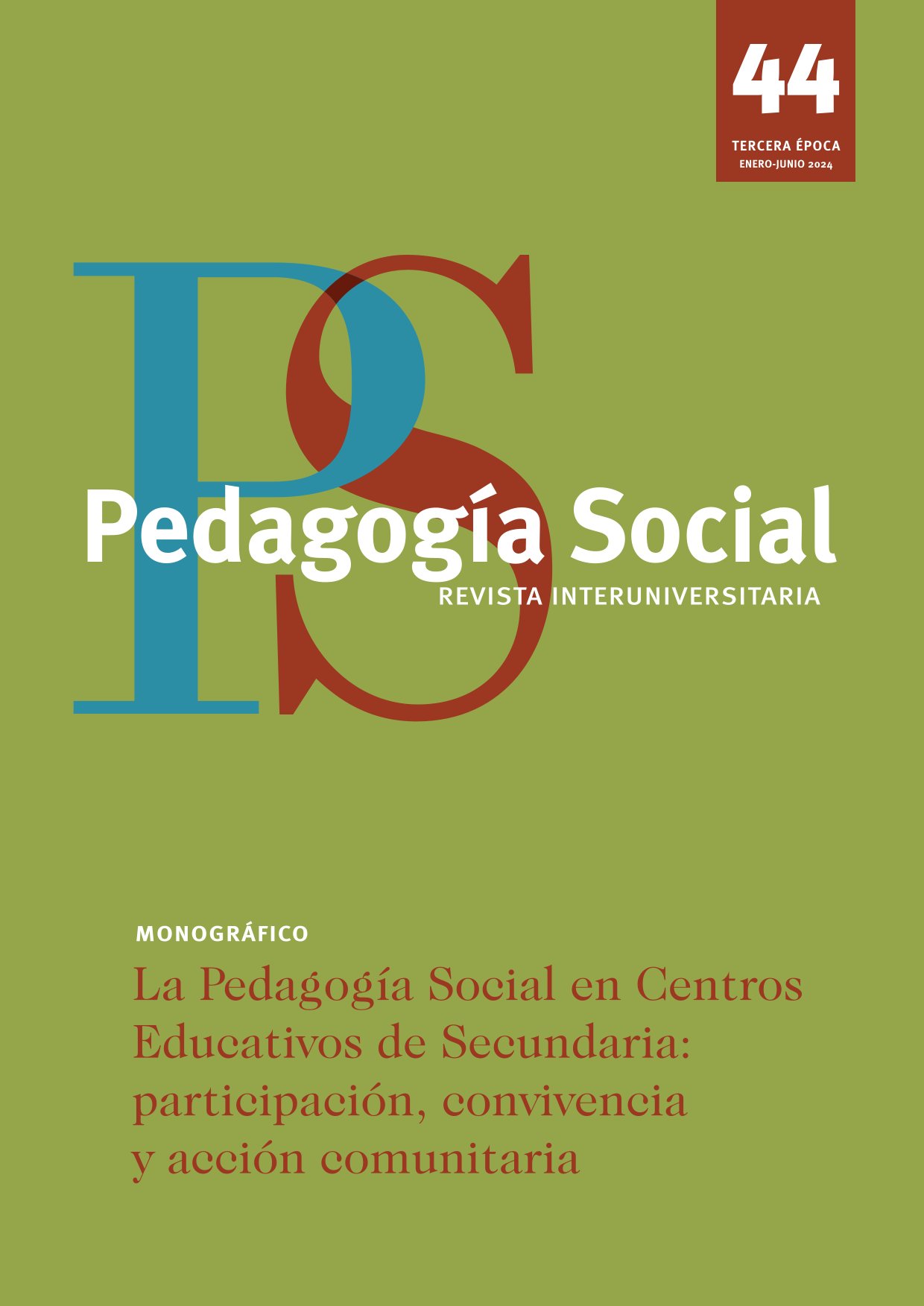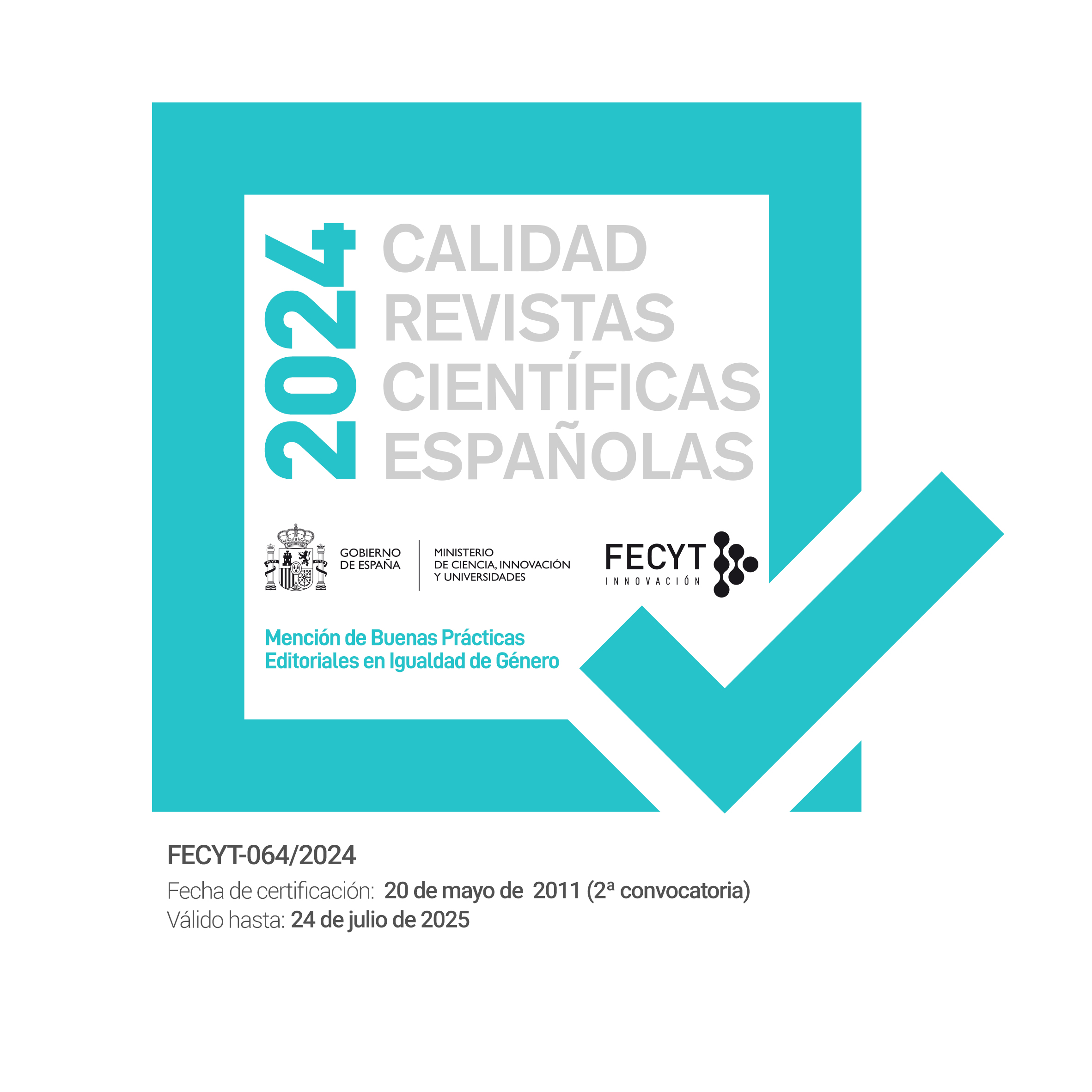Emergence and development of social pedagogy in schools: the portuguese case
DOI:
https://doi.org/10.7179/PSRI_2024.44.06Keywords:
Social pedagogy, social education, schools, family, community, participationAbstract
Dealing with the increasing diversity evident in contemporary schools implies the use of tools from the field of social pedagogy, specifically intercultural mediation, to support educational and socio-pedagogical mediation. In this way it will be possible to respond to the growing heterogeneity of contemporary society that is increasingly visible in the school environment, without resorting to uniform and assimilationist attitudes and practices. Many of the complex societal challenges prevalent in today’s world find their reflection within these educational environments which are an integral part of the broader social landscape. Consequently, numerous issues that arise within them, stemming from the substantial increase in the multicultural composition of their student body, extend beyond the conventional roles of teachers. It is therefore vital to consider the school not merely as an exclusive domain for teachers and students, but as a space that can be enriched and intervened upon by social educators, whose expertise lies in socio-cultural and socio-pedagogical dimensions. These professionals cultivate distinctive relationships with students, offering a unique perspective on the diverse realities each individual faces. Moreover, they extend their reach beyond the school, seeking to understand and provide assistance in resolving these issues. These specialized professionals play a crucial role in implementing preventive and mediation efforts, aimed at averting situations that could potentially escalate into serious problems such as bullying or disciplinary issues. Based on an analysis of the literature, the article aims to explore and compare the emergence of social pedagogy and intercultural mediation in contemporary schools in various countries, and particularly in Portugal, as a disciplinary and/or professional strategy for social educators to promote social inclusion, coexistence and networking between schools, families and communities.
Downloads
References
Amado, J. (2000). Interacção pedagógica e indisciplina na aula. Asa Editores.
Baptista, I. (2021). Inovação, pedagogia social e desenvolvimento humano. In A. M. Vieira, R. Vieira e J. C. Marques (Orgs.), Temas e contextos de pedagogia-educação social (pp. 59-66). Edições Afrontamento.
Cameron, C. (2016). Social pedagogy in the UK today: Findings from evaluations of training and development initiatives. Pedagogía Social. Revista Interuniversitaria, 27, 199-223. https://doi.org/10.7179/PSRI_2016.27.10
Caride, J. A. (2020). La (in)soportable levedad de la educación no formal y las realidades cotidianas de la educación social. Laplage em Revista, 6(2), 37-58. https://doi.org/10.24115/S2446-6220202062855p
Caride, J. A. (2021). Educación social y pedagogía social: Aproximación a su estado de cuestión en España. In A. M. Vieira, R. Vieira e J. C. Marques (Orgs.), Temas e contextos de pedagogia-educação social (pp. 67-86). Edições Afrontamento.
Caritas Deutschland. (s.d.). Berufsporträt – Sozialpädagogische/r Assistentin / Assistent. https://www.caritas.de/fuerprofis/arbeitenbeidercaritas/sozialeberufe/sozialpaedagogischeassistent/in/sozialpaedagogischeassistentin.aspx
Carvalho, A. D. (2012). Antropologia da exclusão ou o exílio da condição humana. Porto Editora.
Coleman, J. (Dir.). (1966). Equality of educational opportunity. U. S. Government Printing Office.
Correira, F., Martins, T., Azevedo, S. e Delgado, P. (2014). A educação Social em Portugal. Novos desafios para a identidade profissional. Interfaces Científicas – Educação, 3(1), 113-124.
Cunha, P. D. (1997). Entre dois mundos. Vida quotidiana de famílias portuguesas na América. Ministério da Educação, Secretariado Coordenador dos Programas de Educação Multicultural.
Hamburger Institut für Berufliche Bildung. (2012). Sozialpädagogische Assistenz – Standards für die praktische Ausbildung in Hamburg. https://hibb.hamburg.de/wp-content/uploads/sites/33/2015/10/sozialpäd-asstistenz-standards-praktische-ausbildung-BFSvq.pdf
Jares, X. R. (2007). Pedagogia da convivência. Profedições.
Júnior, J. (2007). O combate à discriminação racial nos EUA: Estudo histórico comparado da atuação dos três poderes. Sociedade em Estudos, 2(2), 53-61. http://www.sociedadeemestudos.ufpr.br/atual/arquivos/junior%20pag%2053.pdf
March Cerdà, M. X., Orte Socias, C. e Ballester Brage, L (2016). La pedagogía social en España: De la reconstrucción académica y profesional a la incerteza científica y social. Pedagogía Social. Revista Interuniversitaria, 27, 95-132. https://doi.org/10.7179/PSRI_2016.27.06
Merten, R. (2022). Staatliche Anerkennung – Entwicklungslinien eines schwierigen Themas. Erziehungswissenschaft, 33(64), 9-22. https://doi.org/10.25656/01:24841
Office for Standards in Education. (2003). Excellence in cities and education action zones: Management and impact. https://dera.ioe.ac.uk/id/eprint/4739/1/Excellence_in_Cities_and_Education_Action_Zones_management_and_impact_(PDF_format)[1].pdf
Ortega Esteban, J. (1999). Educación social especializada, concepto y profesión. In J. Ortega Esteban (Coord.), Educación social especializada (pp. 13-41). Ariel.
Pérez de Guzmán, V. e Trujillo Herrera, J. F. (2021). Investigar la historia de la educación social en España desde sus microhistorias. In A. M. Vieira, A., R. Vieira, & J. C. Marques (Orgs.), Temas e contextos de pedagogia-educação social (pp. 87-106). Edições Afrontamento.
Perrenoud, P. (1995). O ofício de aluno e o sentido do trabalho escolar. Porto Editora.
Petrie, P. (2013). Social pedagogy in the UK: Gaining a firm foothold? Education Policy Analysis Archives, 21(37). https://doi.org/10.14507/epaa.v21n37.2013
Plowden, F. (1967). Children and their primary schools. A report of the Central Advisory Council for Education (England). Her Majesty’s Stationery Office.
Richter, H. (2019). Sozialpädagogik – Pädagogik des Sozialen. Grundlegungen, Institutionen und Perspektiven der Jugendbildung. Springer.
Romans, M., Petrus, A. e Trilla, J. (2003). Profissão educador social. Artmed.
Schugurensky, D. (2016). Social pedagogy in North America: Historical background and current developments. Pedagogía Social. Revista Interuniversitaria, 27, 225-251. https://doi.org/10.7179/PSRI_2016.27.11
Schultz, J., Haynie, K. L., McCulloch, A. M. e Aoki, A. (Eds.). (2000). Encyclopedia of minorities in American politics. Volume 1: African Americans and Asian Americans. Oryx Press.
Terrón-Caro, M., Cárdenas-Rodriguez, R. e Casado, R. (2017). Educación intercultural inclusiva. Funciones de los/as educadores/as sociales en instituciones educativas in Pedagogía Social: revista interuniversitaria, 29, 25-40.
Thole, W. e Küster-Schapfl, E.-W. (1997). Sozialpädagogische Profis: Beruflicher Habitus, Wissen und Können von PädagogInnen in der außerschulischen Kinder– und Jugendarbeit. VS Verlag für Sozialwissenschaften Wiesbaden.
Úcar, X. (2021). Constructing questions for the social professions of today: The case of social pedagogy. International Journal of Social Pedagogy, 10(1). https://doi.org/10.14324/111.444.ijsp.2021.v10.x.009
Vieira, A. (2013). Educação social e mediação sociocultural. Profedições.
Vieira, A. e Vieira, R. (2017). Mediações socioculturais em territórios educativos. In R. Vieira, J. Marques, P. Silva, A. Vieira e C. Margarido (Orgs.), Conceções e práticas de mediação intercultural e intervenção social (pp. 29-56). Edições Afrontamento.
Vieira, R. (1999). Modelos científicos e práticas educativas: (breve incursão no séc. XX). A Página da Educação, 79, 22. https://www.apagina.pt/?aba=7&cat=79&doc=7655&mid=2
Vieira, R. (2009). Identidades pessoais. Interacções, campos de possibilidade e metamorfoses culturais. Colibri.
Vieira, R. (2011). Educação e diversidade cultural: Notas de antropologia da educação. Afrontamento e CIID-IPL.
Vieira, R. e Vieira, A. M. (2023). A mediação intercultural como prática da pedagogia social: Reflexões epistemológicas e metodológicas. In R. Vieira, M. V. Pérez de Guzmán Puya, J. C. Marques, P. Silva, A. M. Vieira, C. Margarido, R. Matos, & R. Santos (Orgs.), Livro de atas: XXXIV Congresso Internacional da SIPS (Sociedade Iberoamericana de Pedagogia Social) e 10.ª Conferência Internacional de Mediação Intercultural e Intervenção Social – “Pedagogia social e mediação intercultural: Teoria e prática na intervenção socioeducativa” (pp. 628-640). CICS.NOVA.IPLeiria e ESECS.Politécnico de Leiria.
Zanten, A. H.-v. (1990). L’école et l’espace local. Les enjeux des zones d’éducation prioritaires. Presses Universitaires de Lyon.
Downloads
Published
How to Cite
Issue
Section
License

This work is licensed under a Creative Commons Attribution-NonCommercial-ShareAlike 4.0 International License.
Copyright and right to archive
The published version of the articles can be self-archived by their authors in open access institutional and thematic repositories. However, Pedagogía Social. Revista Interuniversitaria must authorize partial or global reutilisation on new papers or publications.
Published papers must be cited including the title of the journal Pedagogía Social. Revista Interuniversitaria, issue, pages and year of publication
Ethical responsibilities
Pedagogía Social. Revista Interuniversitaria does not accept any material that has been previously published in other documents or publications. Authors are responsible for obtaining the required permissions for partial or global reproduction any material from other publications, and to correctly quote its origin.
Pedagogía Social. Revista Interuniversitaria is obliged to detect and report fraudulent practices.
Only those who have intellectually contribute to the development of the paper must appear as authors.
The journal expects authors to declare any commercial partnership that might entail a conflict of interest with respect to the submitted article.
Authors must mention in the article, preferably in the “methodology” section, that the procedures used during the samplings and controls have been made after getting informed consent.
The journal will not use any received contribution in a way other than the goals described in these guidelines.
Copyright Notice
© Pedagogía Social. Revista Interuniversitaria. Papers published in both the printed and online versions of this Journal are property of Pedagogia Social. Revista Interuniversitaria, being required to cite the source in any partial or total reproduction.
Unless otherwise stated, all content of this electronic journal is distributed under "Creative Commons Attribution-Non commercial 3.0 Spain" (CC-by-nc) license for use and distribution. The informative version and the legal text of this license is available here. This has to be expressly stated in this way when necessary.






